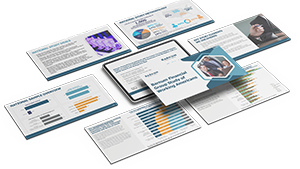
April is Financial Literacy Month — obscured like so many other things by the Pandemic that is afflicting the entire nation. However, financial literacy and hacving a good money mindset to reach goals are probably more important than ever in this period of economic uncertainty and hardship for many.
Greek philosophers stressed how important it was to “know thyself,” and self-awareness can spell the difference between effective or floundering financial decision-making. The most important, yet most overlooked, component of financial literacy is learning to understand your underlying beliefs, or your mindset, around money. Becoming educated in any subject is not a final destination but a continuous journey. And when it comes to financial education, success requires more than just study. Your finances and how you handle them are very personal, and the subject matter is subjective. Mindset can shape how successful you are in making the right financial decisions for yourself and your family.
Develop a positive money mindset
Beliefs are your thoughts, usually stemming from a feeling. When you think about money, how do you feel? Excited about opportunities to earn and save more, or tense and anxious because decisions are so difficult, and you will never be comfortable financially. It is these feelings that drive your thought process and ultimately every decision you make regarding finances. If you frequently catch yourself saying things like, “The rich get richer, while the poor get poorer” or “Money is the root of all evil,” you are going to tense up and act accordingly.
Everyone has a relationship with money, no matter if you acknowledge the relationship or not. You either nurture the relationship or you neglect it. Fortunately, or unfortunately, your relationship with money is heavily influenced by what your parents or caregivers thought about money as you were growing up and how they communicated their attitude to you. The good thing is that no matter what you absorbed earlier in life, you also have the power to change it if it is hindering your progress toward a positive money mindset.
To start, pay close attention to, or be aware of, your mindset around matters concerning your money. If negative thoughts and feelings arise when it is time to talk or take some financial action, it is time to make a change. Consider where the fixed beliefs are coming from, acknowledge that they are limitations, and work to change them into something more positive and growth- focused.
Rich Dad, Poor Dad
A book I believe is the #1 personal financial book of all time is “Rich Dad, Poor Dad”, by Robert Kiyosaki. The focus is not on financial products or investing tips. Kiyosaki tells the story of growing up with two fathers, his biological one and his best friend’s father. The two dads came from different backgrounds and, as the title indicates, were in different financial situations. But both dads shaped the author’s beliefs about money and investing. They looked at their own situations positively, and made good decisions for themselves and their families, exploding the myth that you need to start very near or at the top to be successful.
Educate Yourself
Now that you are in a growth mindset about money, you need to seek as much information as possible to make the right decisions for you, your family, and/or your business.
Use the internet
Luckily, we live in the Information age. Find a few credible websites or contributors to help you understand the components of money that you are unclear about, whether it is mortgages, budgeting, investing or something else. Follow the writing of those who resonate with you, and also track them on social media. You can learn a ton from Instagram stories, or from a simple Twitter post. Most of the people who are putting out this content are interested in helping and want feedback. Do not be afraid to make comments or ask questions. The contributors will appreciate your paying attention, and you will learn something in the process.
Take classes
Virtually or in person, the amount of financial education that is available is plentiful, and it is usually free. Taking a class will expose you to a full curriculum versus picking up pieces of knowledge information here and there. These classes should be taught by a licensed financial advisor or qualified academic. Learning from an advisor also gives you access to a professional who understands the technical aspects of money and investing, but who can also share real-world experience from working with clients.
Work with an advisor
This seems to be the most intimidating step for people. Working with a financial advisor is like working with a trainer at the gym, or a tutor in school or a consultant for your business. The professional advisor acts as a resource to help you get to where you want to go. Your destination could be more permanent, such as a retirement plan, but it can also be a shorter-term goal, such as making sure you are putting enough into savings , developing a budget, or saving for a car.
In 15 years of working in the financial services industry, I can say for sure that money is complicated and so very personal. There is rarely a solution that works for you and also works in every detail for your neighbor. Failure to understand one’s own special needs and biases is where many people get into trouble. Doing what a neighbor, friend or relatives does is not the answer. Your advisor will help you narrow down your goals and then build your own plan to achieve those goals.
With the right knowledge and mindset surrounding money, someone who is making $70,000 a year has the potential to be “richer” than someone who is making $140,000. The actions that you take with your money come from the thoughts you have about money.
“It’s not what you say out of your mouth that determines your life, it’s what you whisper to yourself that has the most power!”
― Robert T. Kiyosaki
By Elizabeth Hiza, Chief of Staff, Barnum Financial Group
Securities offered through qualified registered representatives of MML Investors Services, LLC. Member SIPC. (www.sipc.org) 6 Corporate Drive, Shelton, CT 06484. (203) 513-6000.




